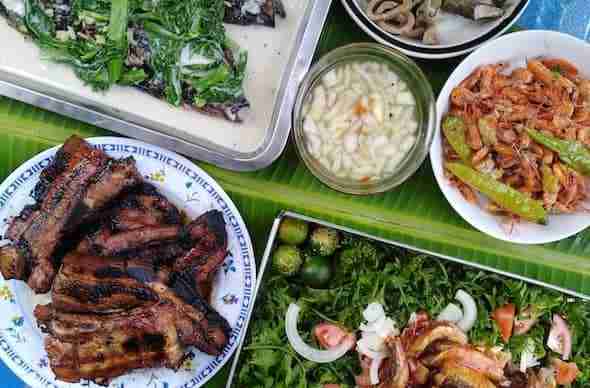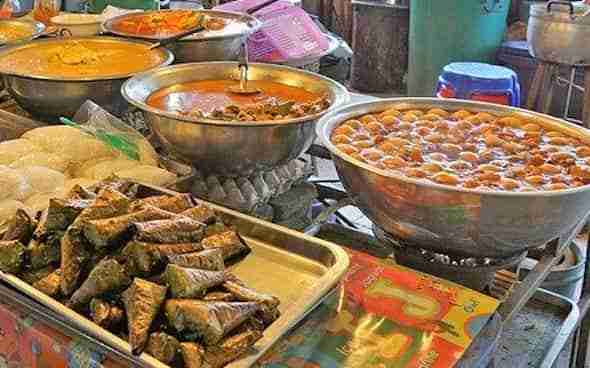The Philippines is an interesting country to visit for a number of reasons but there are some unusual questions that are asked. A decent amount of these questions are about what food is there in the Philippines to eat and do they eat insects, dogs, or rats. And is food in the Philippines safe to eat? So do they eat rats in the Philippines?
Yes, there are rural areas and remote places in the Philippines that do eat rats. It is not your typical street rat but a field rat. These rats come from the countryside where their diet is mostly rice and other crops in the countryside. It should be noted that rats are not commonly eaten in the Philippines, but are in some rural areas or certain indigenous groups.
In this post, we will go through do they eat rats in the Philippines. Let’s get started!
Learn More On The Philippines
- Do You Tip Grab Drivers In The Philippines?
- Can You Flush Toilet Paper In The Philippines?
- Is There Tipping In The Philippines?
- Can A Foreigner Drive A Scooter In The Philippines?
- Are Filipino And Tagalog The Same?
- Can You Go Surfing In Boracay?
- When Does Typhoon Season Start In The Philippines?
Do They Eat Rats In The Philippines?
Yes, there are certain remote areas and rural areas in the Philippines that do eat rats. It is not your typical street rat but a field rat. While rats are not commonly consumed in the Philippines, it’s worth noting that in some rural areas or certain indigenous groups, there are cultural practices that involve the consumption of rodents, including rats.
These practices are not widespread throughout the country and are not a typical part of Filipino cuisine.
Filipino cuisine is diverse and has a wide range of traditional dishes that are enjoyed throughout the country. With popular Filipino dishes often feature ingredients such as rice, pork, chicken, beef, seafood, and a variety of vegetables and fruits.

What Other Countries Eat Rats?
There are a number of other countries that eat rats regularly, these are as follows.
- Cambodia.
- Laos.
- Myanmar.
- Vietnam.
- Indonesia.
- Thailand.
- Ghana.
- China
- And of course the Philippines.
What Is The Most Consumed Meat In The Philippines?
Pork is the most consumed type of meat in the Philippines, followed by chicken.
Is Street Food In The Philippines Safe To Eat?
Street food in the Philippines can be safe to eat if certain precautions are taken. Here are some tips to help ensure a safer street food experience.
- Choose vendors wisely – Look for vendors who have a high number of customers, as this generally indicates that their food is freshly prepared and regularly restocked. Popular vendors with a good reputation among locals are often a good choice.
- Observe food handling and hygiene practices – Take a moment to observe how the food is prepared and handled. Look for vendors who practice good hygiene, such as wearing gloves or using utensils, and those who keep their food covered to protect it from flies and other contaminants.
- Go for cooked food – Opt for street foods that are thoroughly cooked, such as grilled meats, skewers, or stir-fried dishes. The heat from cooking helps kill bacteria and other pathogens that may be present.
- Eat while it’s hot – Consume the food while it’s still hot as the heat can help minimize bacterial growth. Avoid eating street food that has been sitting out for a long time at room temperature.
- Drink bottled water – If you’re looking for something to drink, it’s generally safer to choose sealed bottled water or other commercially packaged beverages rather than relying on tap water or homemade drinks.
- Trust your instincts – If something looks or smells off, it’s better to err on the side of caution and avoid eating it.
It’s important to note that street food, like any type of food, carries some inherent risks. Individuals with sensitive stomachs or weakened immune systems may be more susceptible to foodborne illnesses.
Is It Safe To Eat Vegetables In The Philippines?
Eating salads and raw vegetables is not the best idea in the Philippines. Boiling the vegetables will kill any bacteria and salads need to be washed with bottled water before eating.

Is It Easy To Get Food Poisoning In The Philippines?
Yes, it is easy to get food poisoning in the Philippines especially if you don’t have a strong stomach, There are a number of ways to reduce the risk of food poisoning. These are as follows.
- Eat at places that are busy, more than likely they are preparing the food properly and cooking the food properly. And the ingredients will be fresher.
- It’s best to eat from places that are preparing and cooking the food in front of you.
- Avoid any raw or undercooked meat, fish, and eggs. This is a sure way of getting sick.
- Be wary of eating raw foods such as salads or fruits that aren’t peeled. This is because they are often washed using local water.
- Only drink bottled water. This includes brushing your teeth.
- Ask for drinks without ice. Ice is often made with tap water.
- Try and wash your hands regularly and if possible bring a hand sanitizer around with you.
- Many of the street vendors will serve food and drinks on freshly washed plates and cups. That washed with tap water. Ensure that they are completely dry before they serve you.

Is It Safe To Drink The Tap Water In The Philippines?
It is NOT advised to drink tap water in the Philippines, their treatment plants put too much chlorine into the water for treatment. As well poor water pipe infrastructure has led to the water getting contaminated.
The locals don’t drink straight out of a tap cause they don’t trust the water and there is a smell that is mostly caused by the chlorine.
USEFUL TRAVEL RESOURCES
Book Accommodation
Booking.com has a large range of properties from hotels, hostels, guesthouses, and resorts where you will find the best deals. Airbnb and Hostelworld also have a good range of places to stay at good prices.
Booking Flight
Skyscanner is a flight search comparison website that searches millions of flights all at once. Ultimately it is the best flight comparison website online at the moment.
Booking Transportation & Things To Do
Rome2rio and 12Go are useful to plan how to get anywhere by searching train, bus, car, and ferry routes. Especially useful in countries like Vietnam or Thailand. While Klook is great for exploring things to do in each place.
Travel Insurance
Travel insurance is cheap and more than likely you will never need to use it but you will have peace of mind if something does happen, you are covered in case of an emergency. World Nomads have great customer service and competitive prices.
Check out our resource page for the best companies to use when you travel.
Wrapping Up
Finally, there are rural areas and remote places in the Philippines that do eat rats. It is not your typical street rat but a field rat. These rats come from the countryside where their diet is mostly rice and other crops in the countryside. It should be noted that rats are not commonly eaten in the Philippines, but are in some rural areas or certain indigenous groups.
And that’s it for now! I’d love it if this post on whether they eat rats in the Philippines was helpful to you. Let me know if you have any questions and let me know if there is more to add.
Did you enjoy this post? Then don’t forget to pin it!





